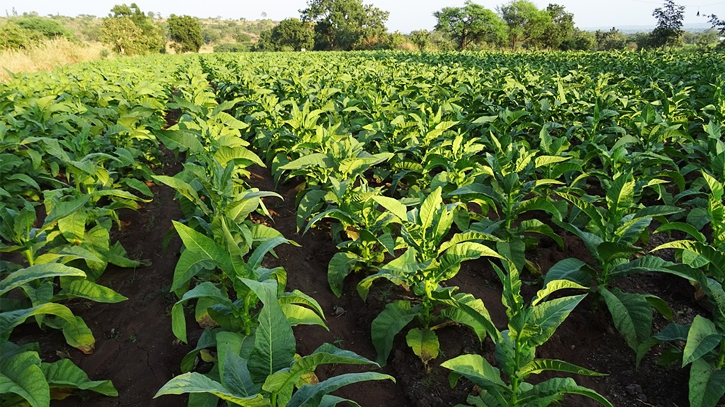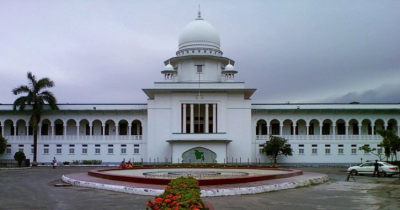
Photo : Collected
Matamuhuri River, a vital waterway among the five rivers in Cox's Bazar district, is facing encroachment due to tobacco cultivation. Once known for its lush green vegetable banks, the river now witnesses tobacco cultivation spreading across its lands.
According to sources from the Chakaria Upazila Agriculture Office, this year, tobacco cultivation has taken place on more than 620 hectares of land in Chakaria. Initially allocated for winter vegetables, most of these lands are now being used for tobacco cultivation.
Out of the 18 unions in Chakaria upazila, 8 have engaged in tobacco cultivation, with the most significant cultivation observed in Bamu Bilchari, Surajpur-Manikpur, and Kakara Union. Particularly in Bamu Bilchari, Surajpur-Manikpur, and Kakara, tobacco cultivation has encroached upon the paddy fields along the banks of the Matamuhuri river flowing through Bukchir over the Union.
Government instructional signboards have been installed at various critical points in these riverine areas, advising against tobacco cultivation.
Sections 5 and 11 of the Smoking and Use of Tobacco Products (Control) Act, 2005, clearly outline conditions for discouraging the patronage of tobacco products and the production of tobacco crops. However, tobacco companies are not complying with any of these regulations. They provide incentives to farmers to expand tobacco cultivation, including interest-free loans, seeds, fertilizers, and insecticides.
Tobacco farmers argue that tobacco cultivation offers significant financial returns, especially with the added incentives provided by tobacco companies. Additionally, due to low prices for winter vegetables, many individuals are turning to tobacco cultivation.
In response to inquiries regarding the damage caused by tobacco cultivation along the riverbanks, Sheikh Rokon, the secretary-general of Riverine People, an organization working on river conservation, stated, "Tobacco cultivation poses severe environmental risks. The increasing cultivation, coupled with the use of harmful pesticides, will permanently damage river water and fish populations, leading to irreparable harm to our ecosystem."
Sources indicate that burning tobacco cultivated on 790 hectares of land this year will require 50 maunds of wood. This amounts to over 10,000 tons of wood, much of which is sourced from the dense forest areas of Teknaf, Phansiakhali, and Naikshyongchari in Bandarban.
Azimul Haque Azim, the Chairman of Chakriar Surajpur Manikpur Union Parishad, said that tobacco cultivation has been ongoing in the union for more than two centuries. While awareness programs have been conducted in the past to deter farmers from cultivating tobacco, marginal farmers are unable to give up tobacco cultivation due to the incentives offered by tobacco companies. He suggests that an official ban on tobacco cultivation could effectively halt its practice.
Zainal Abedin Khan, the Regional Coordinator of Ubinig Cox's Bazar, emphasized that the fertility of the land is declining due to tobacco cultivation, leading to various health issues among farmers and their families. Additionally, he highlighted the significant financial loss incurred annually due to the burning of wood during tobacco processing.
Md. Rahat Uz-Zaman, the Assistant Commissioner (Land) of Chakaria Upazila, emphasized that tobacco cultivation on char land along the riverbanks will be subject to raids and enforcement through mobile courts. Under no circumstances will tobacco cultivation be permitted on government-owned land.
Messenger/Fameema








